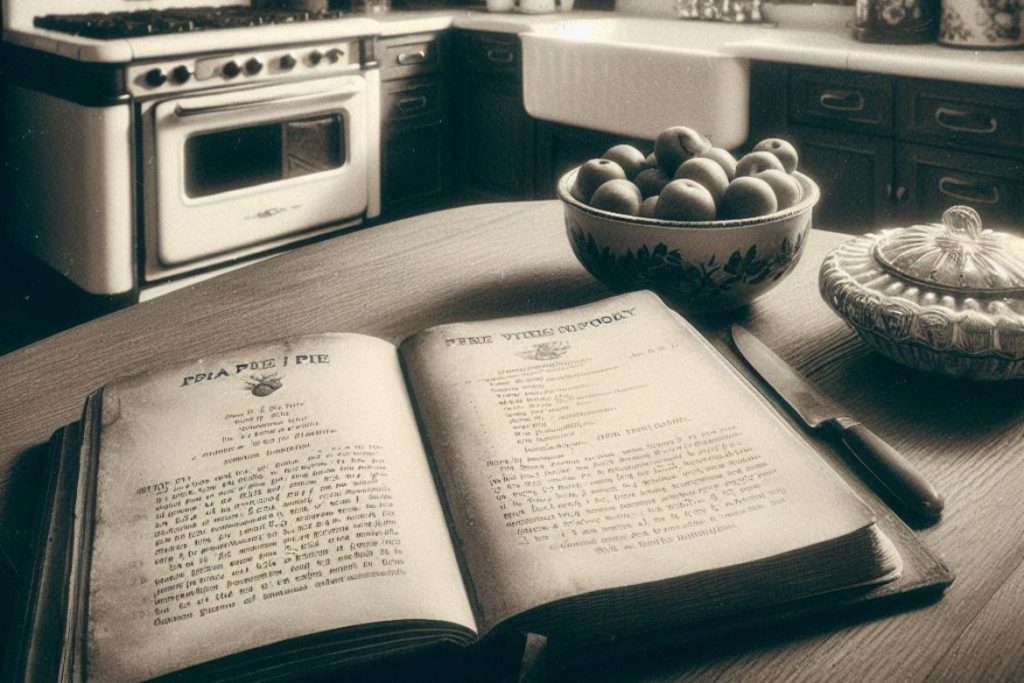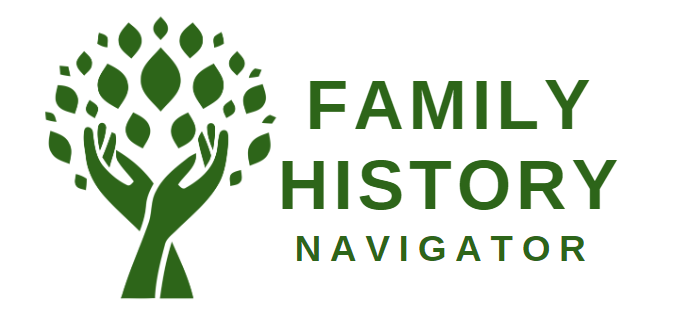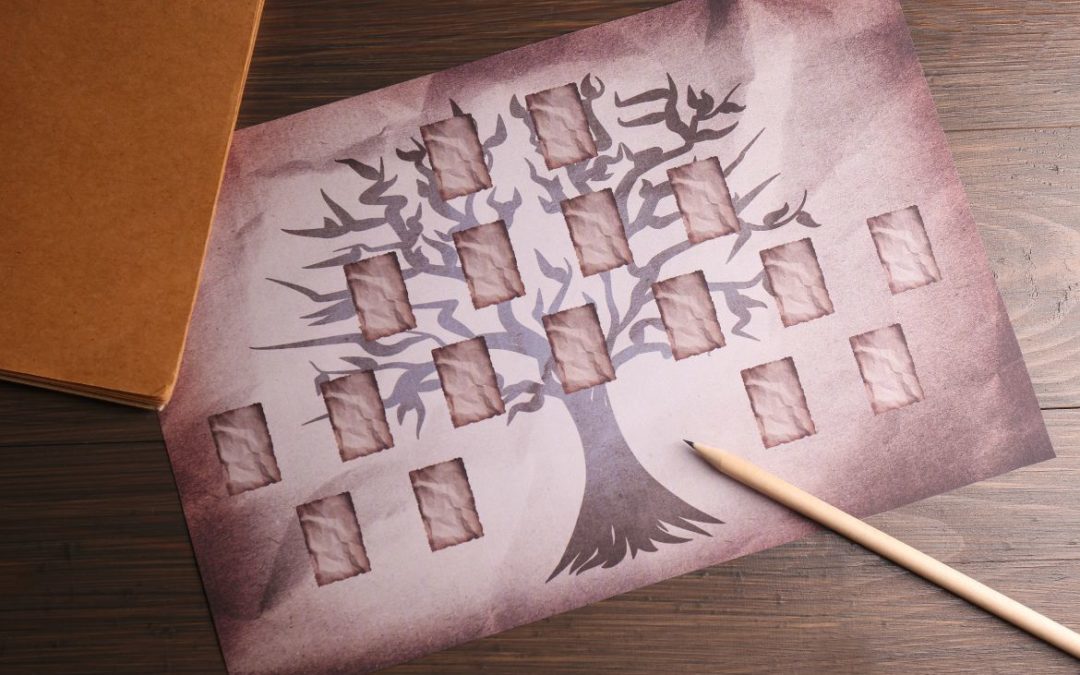While uncovering our roots, the terms “genealogy” and “family history” are often used interchangeably. However, these two disciplines, while connected, have distinct meanings and purposes. Let’s take a look at the differences between genealogy and family history, discovering how each can play a role in creating your family story. Plus get practical tips for enlivening dry genealogy facts. Make your ancestors come to life!
Note: This is a question a student recently asked in one of my intro to genealogy classes. I provided a brief explanation in class but then decided this needed a more detailed answer because I believe it’s an important topic not many people think about.
Genealogy: The Art of Lineage Tracing
Genealogy is the study and tracing of lineages and pedigrees. It’s the discipline that focuses on identifying and documenting your direct ancestors, usually presented in the form of a family tree. The Merriam-Webster dictionary defines genealogy as “an account of the descent of a person, family, or group from an ancestor or from older forms.” Or more simply as “the study of family ancestral lines.”
Genealogy delves into records such as birth and death certificates, marriage licenses, and census records, meticulously piecing together the puzzle of one’s direct ancestors. Analyzing DNA to search for scientific evidence that supports the documents you find is also a piece of the puzzle.

Family History: Beyond Names and Dates
While genealogy forms the foundation, family history extends beyond names and dates, delving into the broader context of individuals’ lives. Family history encompasses the stories and traditions that shape a family’s identity. Essentially, it’s what makes the names and dates on your family tree actually come alive! It encompasses real stories of real people: triumphs, struggles, migrations, and cultural traditions that collectively represent your family’s journey through time.
Practical Tips for Combining Genealogy and Family History
Understanding the distinction between genealogy and family history is the first step towards achieving a complete view of your family’s past. Here are some practical tips for infusing hard facts with real stories.
Tip #1: Start with Genealogical Research
Begin your journey by establishing a detailed family tree through genealogical research. Utilize reputable genealogy websites, historical records, and DNA testing services to trace direct ancestral connections. Without a solid foundation and accurate tree there are no ancestors whose stories you can tell!
Tip #2: Collect Oral Histories for Family History
Interview older family members to gather oral histories, anecdotes, and personal stories. Document the lived experiences that go beyond the names and dates on your family tree.
Tip #3: Search for Heirlooms and Keepsakes That Tell a Story
Every family has physical items of sentimental value. Protect, photograph, and tell the story of yours. Understand the significance of these items in shaping your family’s identity. For example, two items that are particularly precious to me are a 100-year-old cookbook that my great-grandmother used to prepare family meals and a vase that traveled all the way from Europe to the US in the early 1900s. And yes, both are currently in my home!

Tip #4: Understand and Incorporate History
Learning the history of the times when your ancestors lived can further enhance your story. What was it really like to live in that place at that time? How did world events shape your ancestors’ lives? What did people wear and eat? How did they dress? Understand the historical context that influenced your ancestors’ decisions and shaped their experiences. Yes, research time!
Tip #5: Share!
Digital tools make it easier than ever to organize and share both genealogical and family historical information. Create a family website or blog (public or private) to serve as a centralized hub for sharing stories, photos, and documents. Or consider creating a family history book, family photo book, or family cookbook that you can print and share with your extended family.
Genealogy vs. Family History: Documenting Your Heritage
When presenting the story of your ancestors, genealogy lays the groundwork, and family history brings it to life. By embracing both disciplines, you can embark on a journey that goes beyond dates and names, capturing the essence of who you are and where you come from.
Now to you: Which of these five ideas are you most interested in pursuing?

